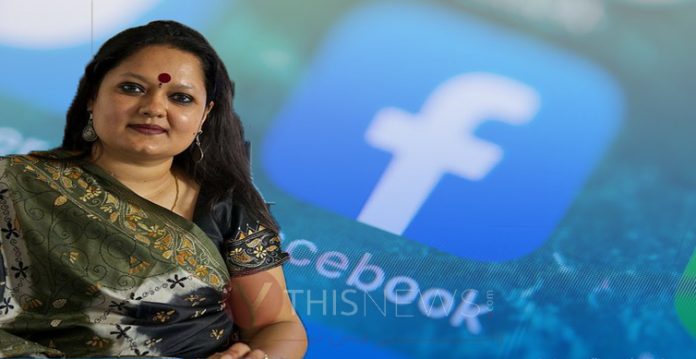After the recent controversy revolving around a hate-speech not getting removed from the platform, the public policy executive of Facebook India’s office has resigned from her post, according to the social networking company’s statement on Tuesday.
The matter ignited when the Wall Street Journal newspaper (WSJ) published a report in its August edition regarding the now-former executive Ankhi Das’s decision to remove anti-Muslim posts put forth by a Hindu nationalist legislator. Her refusal to take it down was apparently due to the possibility of the move “damaging the company’s business interests”.
The man in question is T Raja Singh, a legislator of Telangana and a member of the ruling party at the center, Bharatiya Janata Party (BJP).
Singh, in his cruel posts done on Facebook, called for the shooting of Rohingya refugees, termed the Muslims residing and holding citizenship of India as “traitors” and further threatened to destroy mosques, the places of worship for Muslims, of India.
This lead to an eruption of demands from people around the country for removing the inhuman post from Facebook. However, Ankhi Das chose not to take it down.
Later after the publication of the report of WSJ, Facebook blocked Raja Singh. WSJ’s report also consisted of comprehensive details about other Hindu nationalists and BJP politicians who posted similar things against Muslims, directly contributing to its removal under the hate-speech policy of Facebook.
Over 300 million users of Facebook are from India and the US-based giant holds a vast majority of its business from here. Whatsapp, Facebook’s other infamous application, holds the market of more than 400 million users in India.
Yet, the tech giant’s silence over the hate-speech policy not being valid in the second-most populous country in the world is garnering immense pressure and criticism from around the globe.
An Indian parliamentary committee on information technology is also probing the allegations.
According to another worker of the firm, Ajit Mohan, the managing director of Facebook India, Das quit the company as she “wanted to pursue her interest in public service”.
“Ankhi was one of our earliest employees in India and played an instrumental role in the growth of the company and its services over the last nine years,” Mohan said in a statement.
Defending her former colleague, Mohan’s September interview to the Times of India mentioned that the firm was not trying to hold onto the hate speech posts on its platform for business interests as Facebook is in fact ensuring it “keeps all kinds of harm away from the platform” by doing all things possible.
Mohan also said Das did not hold authority for making verdicts regarding the hate speech as they had another public policy team, different from the content policy team, whose work actually revolves around such things and can make a decision on them.
Addressing Facebook’s Chief Executive Officer, Mark Zuckerberg, over 40 activists and rights organizations of the world wrote letters urging to fire Das.
Sources claim Das left Facebook after she was held for interrogation by the Indian parliamentarians regarding the data privacy issues.


